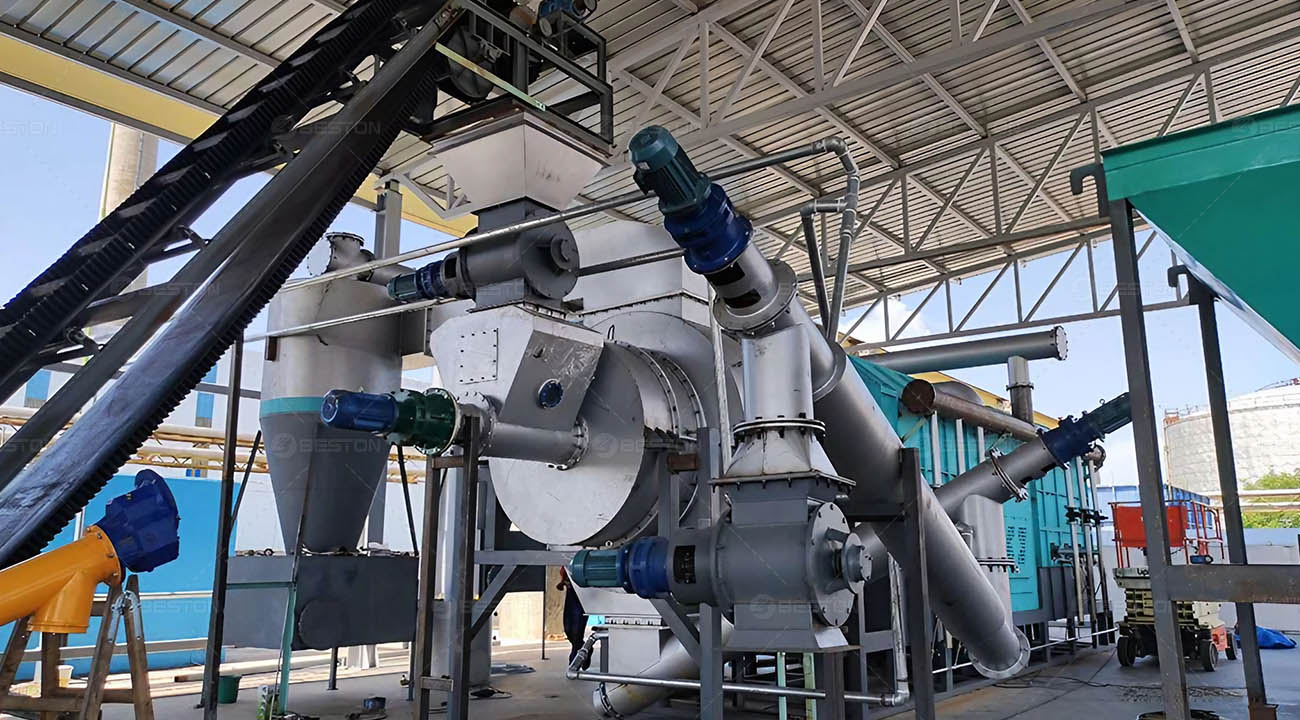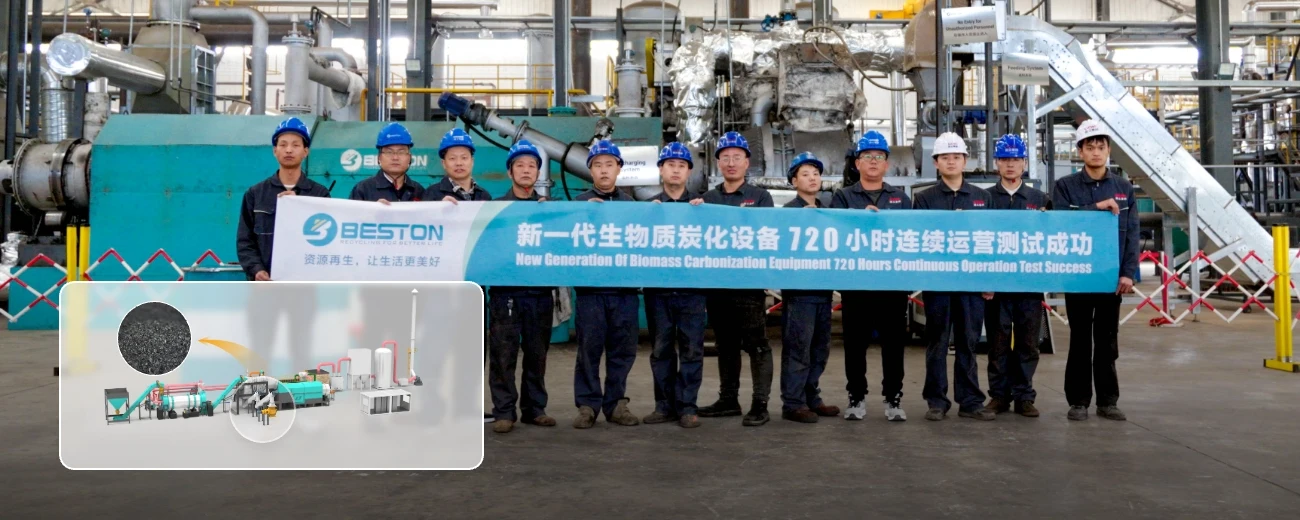Coconut shell charcoal is in demand across various industries for its high carbon content, making it an ideal material for both fuel and industrial applications. To meet this demand, investing in a coconut shell charcoal making machine is a practical solution for manufacturers. However, the process of choosing a suitable machine can be daunting, as several factors must be considered to ensure efficiency, profitability, and sustainable operations. This article outlines critical considerations for selecting the right coconut shell charcoal making machine, including factors like production capacity, machine design, and operational efficiency.

Understanding the Process of Coconut Shell Charcoal Production
Before diving into machine selection, it’s essential to grasp the fundamentals of how to make charcoal from coconut shell. The process involves subjecting coconut shells to pyrolysis, a thermal decomposition process conducted in the absence of oxygen. This method extracts volatile substances, leaving behind charcoal that can be further refined or processed. Pyrolysis is typically carried out at temperatures ranging from 400 to 700°C, depending on the desired properties of the charcoal.
Given this, choosing the right coconut shell charcoal making machine requires understanding the intricacies of the pyrolysis process, including the necessary temperature controls, fuel efficiency, and product quality.
Key Considerations When Choosing a Coconut Shell Charcoal Making Machine
1. Production Capacity
The size and output capacity of the coconut shell charcoal making machine are crucial factors in determining its suitability for a particular operation. Machines vary widely in terms of their production capabilities, with some designed for small-scale operations, while others cater to large-scale production.
For smaller businesses or startups, a small charcoal making machine may be more appropriate. These machines offer a cost-effective solution with lower production volumes, but they still deliver high-quality charcoal. On the other hand, large enterprises focusing on mass production may require machines with higher capacity and greater automation to meet market demands.
When choosing, assess your expected production volume and align the machine’s output capacity accordingly. This will prevent over-investment in a system that exceeds your needs or under-investment in a system that fails to meet production targets.

2. Efficiency and Fuel Consumption
The efficiency of a coconut shell charcoal making machine directly impacts its operating cost. Machines with higher thermal efficiency ensure that the energy required for the pyrolysis process is minimized, reducing overall fuel consumption. This is particularly important when running a large-scale operation where energy costs can accumulate rapidly.
Additionally, the choice of machine should take into account the type of fuel used to power the pyrolysis process. Some machines are designed to operate using waste gases generated during the pyrolysis process itself, which can be harnessed to fuel the system, lowering energy consumption. This feature is particularly advantageous in reducing the overall cost of production.
3. Material Durability and Machine Design
The durability of the machine’s construction plays a significant role in long-term operational efficiency. Coconut shell charcoal production involves high temperatures, which can place considerable strain on the machine components. Therefore, selecting a machine with heat-resistant and corrosion-resistant materials is essential to ensure durability and prevent frequent maintenance.
Machines constructed with high-quality steel or other heat-resistant alloys can withstand the harsh conditions of the pyrolysis process. Furthermore, choosing a coconut shell charcoal making machine designed for easy maintenance and part replacement will reduce downtime and improve productivity.
4. Automation and Control Systems
The level of automation offered by a coconut shell charcoal making machine can significantly affect its ease of operation. Automated machines often feature advanced control systems that allow operators to monitor temperature, pressure, and the rate of feedstock input in real-time, leading to better control over the pyrolysis process.
Automation reduces the need for manual labor, cuts down on operational errors, and improves product consistency. Machines with automated feeding systems can streamline the input of coconut shells, while automatic discharging systems facilitate continuous operation, enhancing efficiency and reducing labor costs. If this is your main consideration, the Beston charcoal making machine might be the best choice.
5. Safety Features
Safety is a critical concern when selecting a coconut shell charcoal making machine. The pyrolysis process involves high temperatures, which can pose safety risks if proper precautions are not in place. A suitable machine should have built-in safety features such as pressure relief valves, fire-resistant materials, and automatic shutdown systems in case of malfunction.
Machines with comprehensive safety systems reduce the risk of accidents, ensuring smooth and safe operations. Ensuring the presence of these features should be a top priority when evaluating different machines.
6. Cost of the Machine
The pyrolysis plant cost is often the most significant factor in the decision-making process. While investing in a high-quality machine can lead to greater efficiency and profitability, it is essential to ensure that the cost aligns with the anticipated return on investment. Small charcoal making machines typically come at a lower initial cost, but they may offer limited scalability. Larger machines, while more expensive, offer greater production capacity, which can lead to higher profit margins in the long term.
It’s important to assess the machine’s features and capacity relative to its price and calculate the potential revenue based on expected charcoal sales. The ability to recoup the investment quickly and efficiently is key to ensuring a profitable operation.
7. Environmental Impact
In recent years, the focus on sustainability has grown, and this extends to the charcoal production process. Choosing a machine that minimizes emissions and reduces environmental impact is not only a social responsibility but also a competitive advantage. Many modern coconut shell charcoal making machines are designed to minimize harmful emissions and utilize waste gases as a sustainable fuel source. This reduces the environmental footprint of the production process while enhancing operational efficiency.
Selecting the Ideal Machine for Your Needs
Selecting a suitable coconut shell charcoal making machine requires a careful balance of various factors, including production capacity, energy efficiency, durability, and environmental impact. Whether opting for a small charcoal making machine or a larger, industrial-scale model, the key is to align the machine’s capabilities with the specific needs of your operation. By prioritizing factors such as energy efficiency, automation, and safety features, businesses can optimize their operations and enhance profitability while ensuring sustainable and high-quality charcoal production.